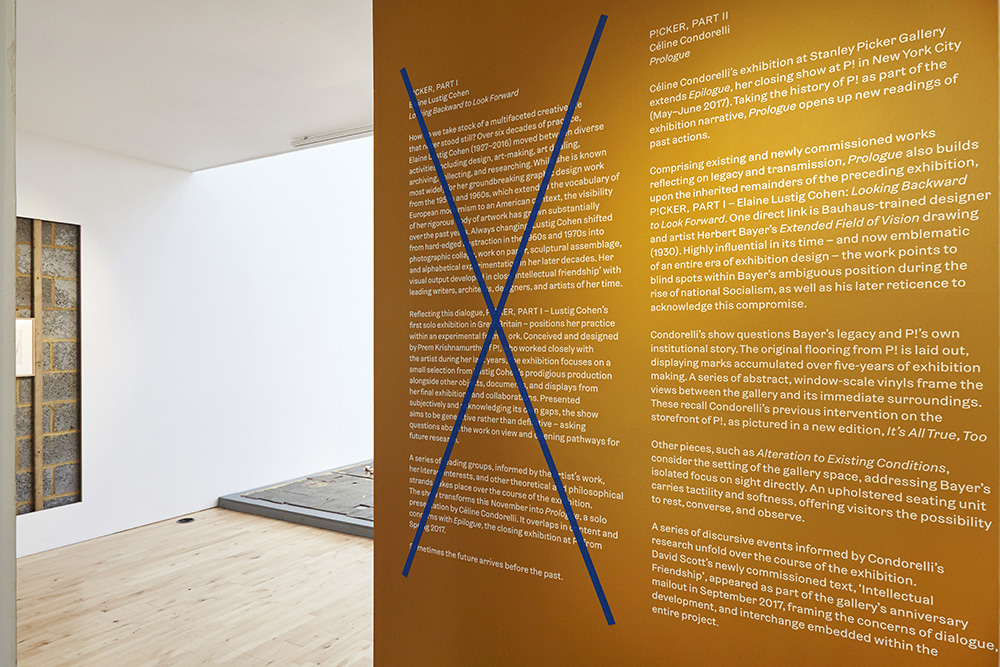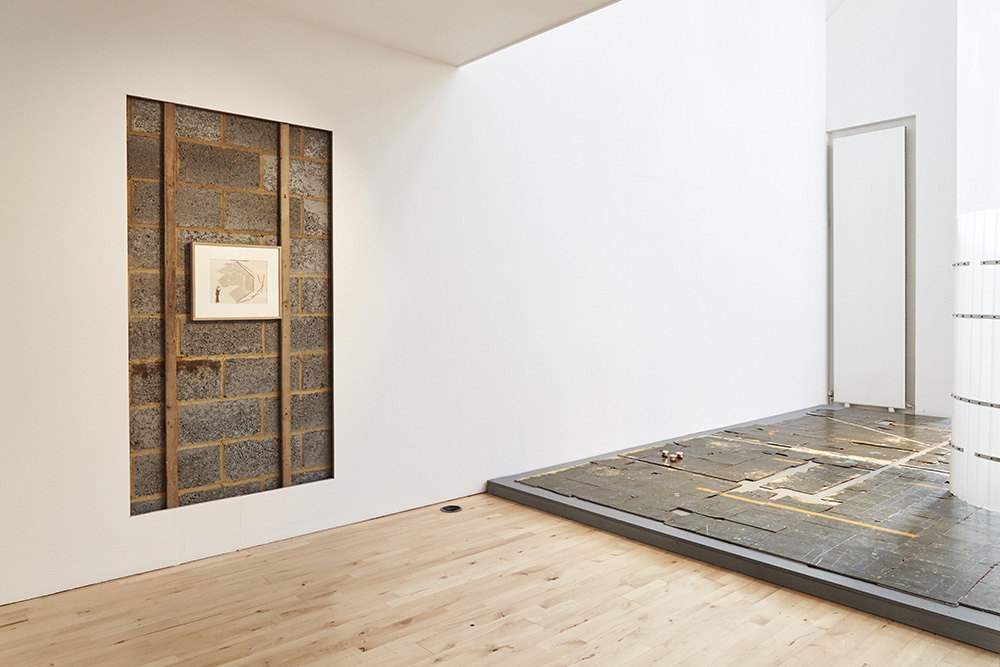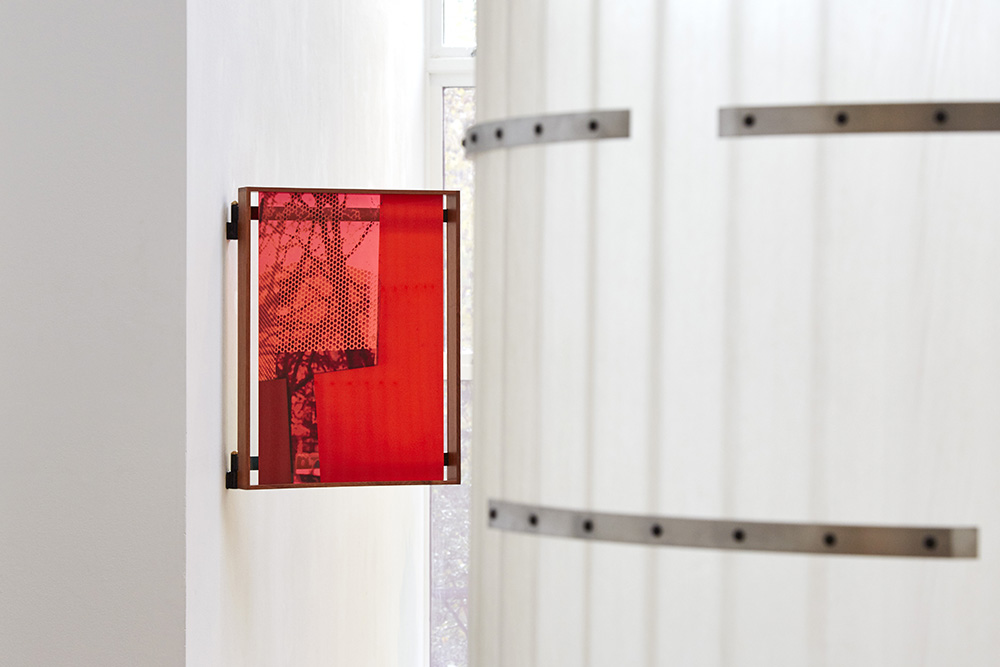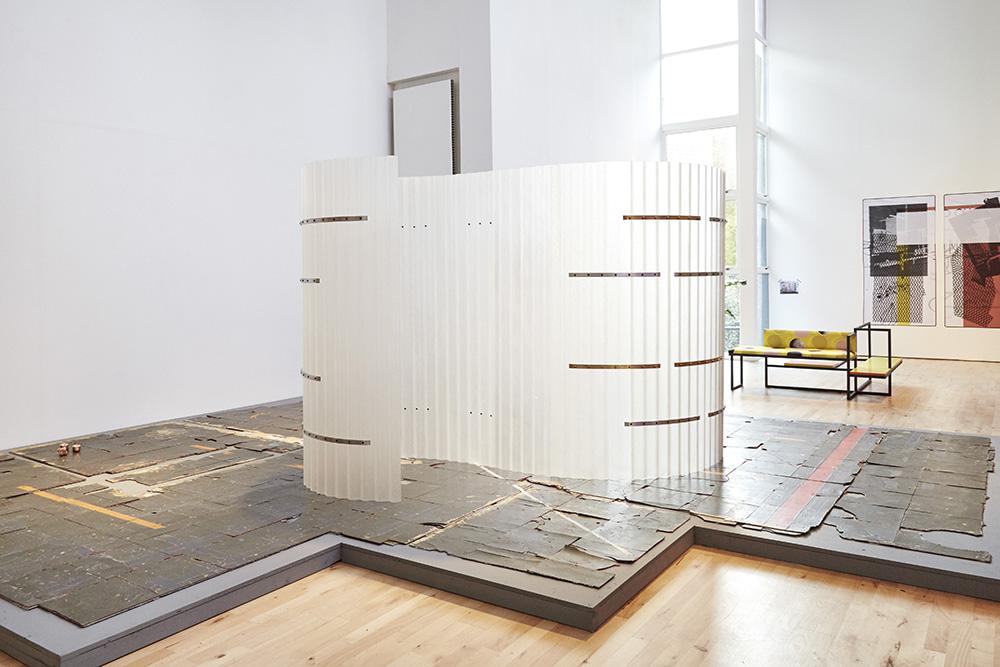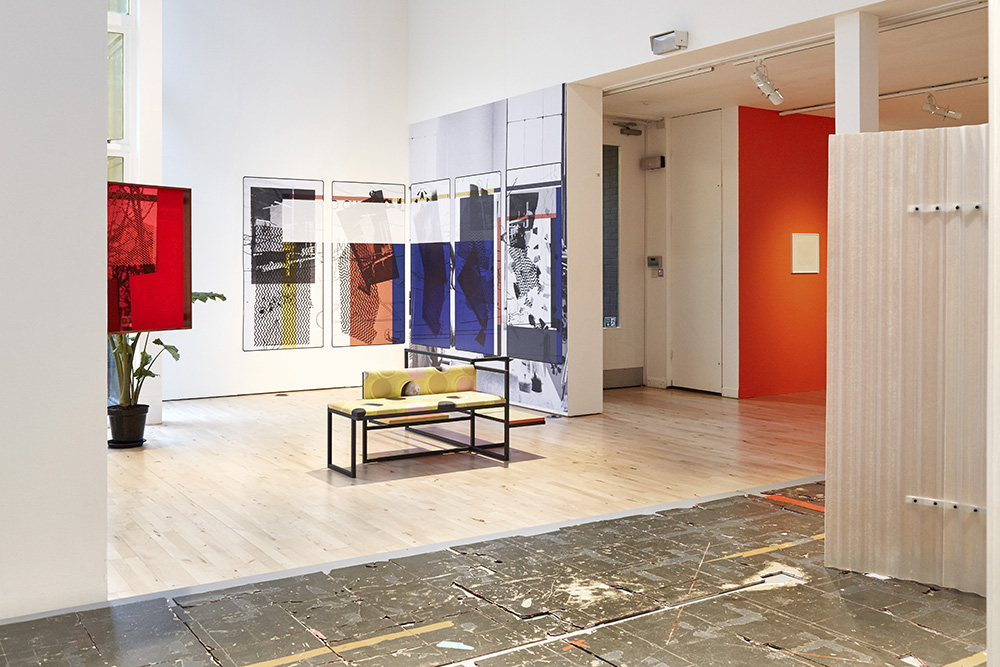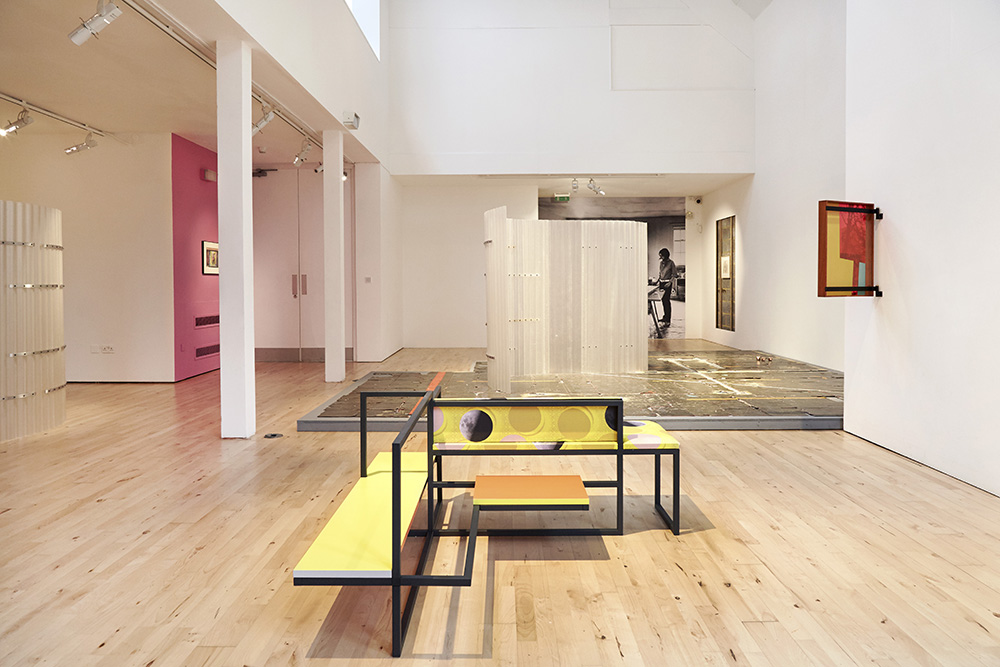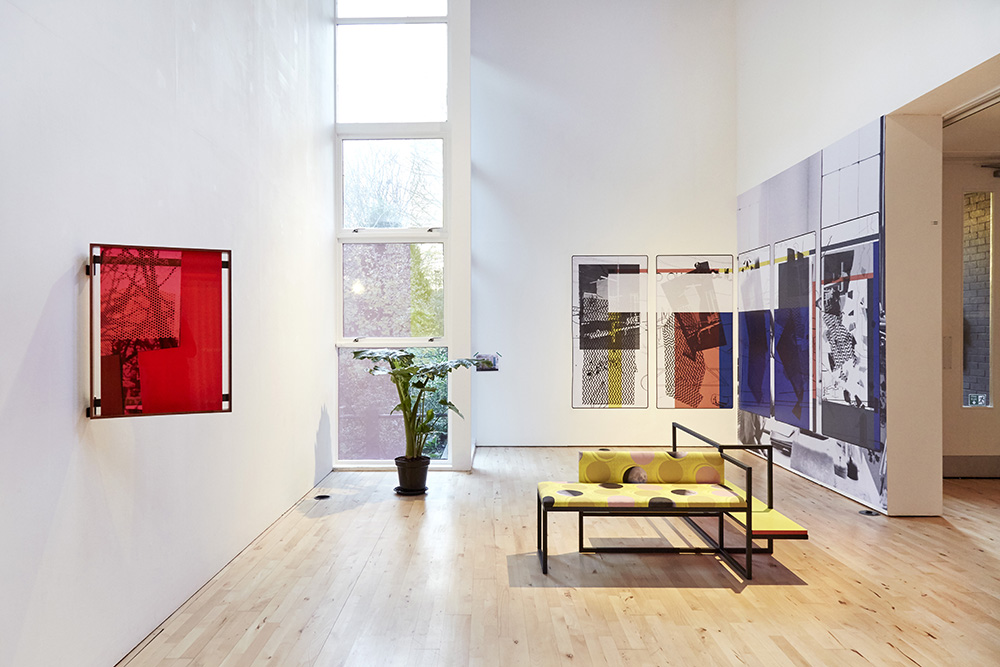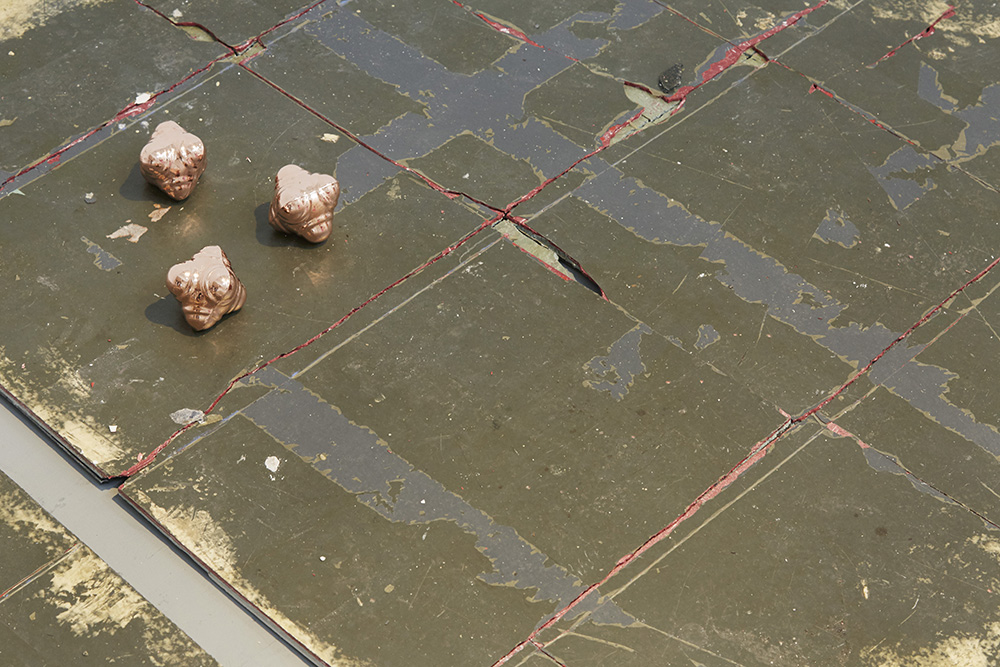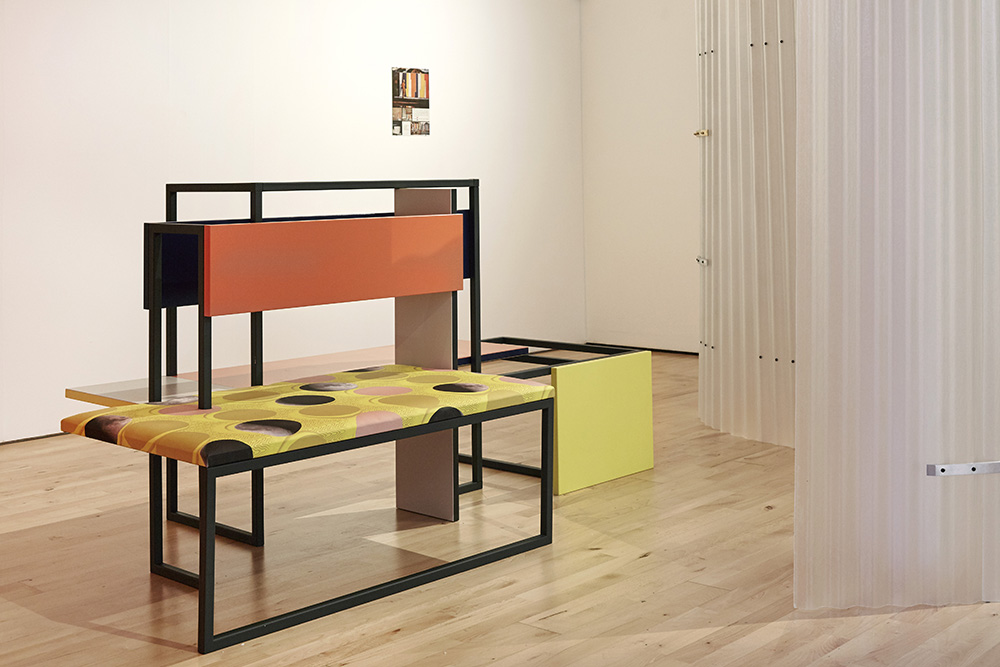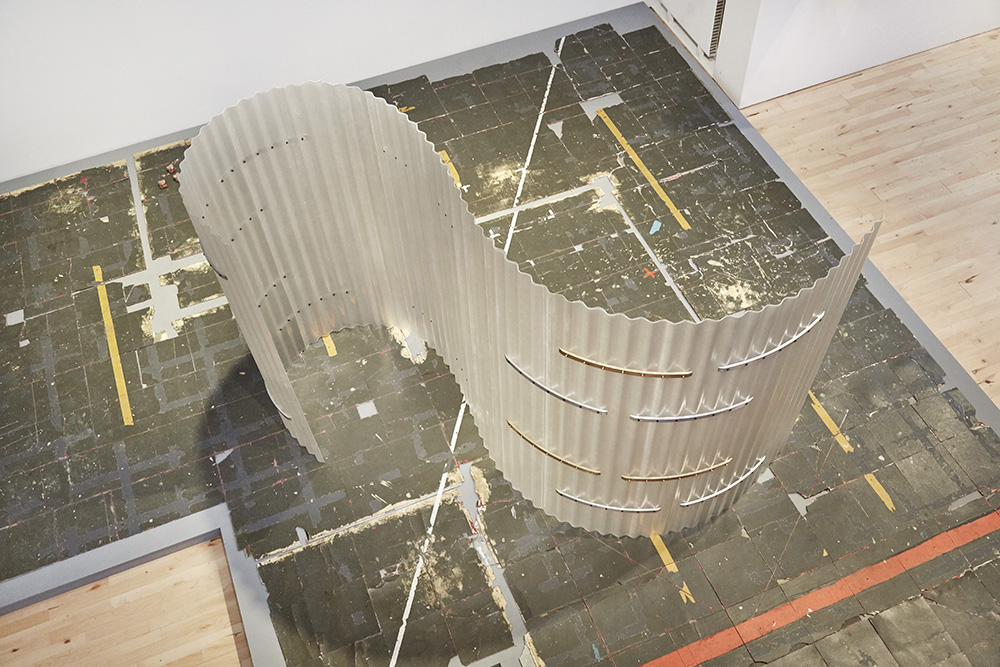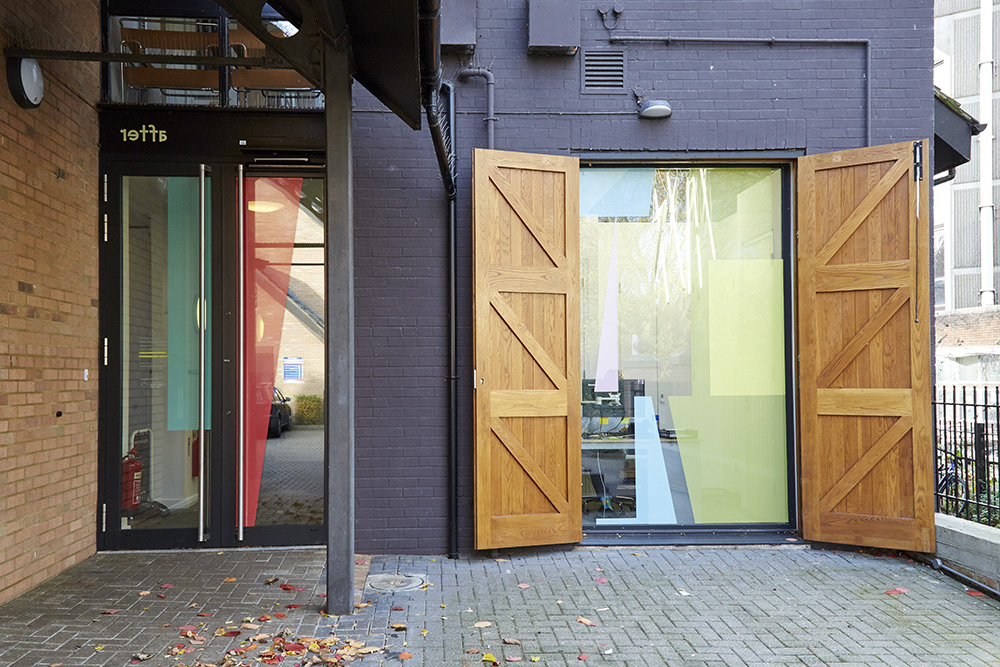P!CKER proffers a particular proposition: that curating, design, and other artistic pursuits in our present times must eschew the promotion of perfect products, instead presenting the creative process itself, with its plurality of positive outcomes and periodic faux pas.
This peculiar statement connects the activities of Stanley Picker Gallery, whose programme embraces the intersections of art and design within a university context, with that of P!, a hybrid exhibition space and ‘Mom-and-Pop-Kunsthalle’ that existed in New York City from 2012–2017. Founded by designer, curator, and educator Prem Krishnamurthy, P! operated with a quixotic drive to remake conventions of exhibition display, reexamine the relationship between aesthetics and political agendas, and reconsider accepted boundaries of contemporary creative practice.
With this collaborative context, P!CKER emerges as a series of two solo exhibitions – presenting polymathic practitioners Elaine Lustig Cohen and Céline Condorelli – alongside a programme of activities. Building off P!’s five year exhibition history while pointing towards future pursuits, the exhibition offers alternative models for considering interdisciplinary pedagogy and ways to work within the world.
P!CKER, PART II
Céline Condorelli Prologue
Céline Condorelli’s exhibition at Stanley Picker Gallery extends Epilogue, her closing show at P! in New York City (May–June 2017). Taking the history of P! as part of the exhibition narrative, Prologue opens up new readings of past actions.
Comprising existing and newly commissioned works reflecting on legacy and transmission, Prologue also builds upon the inherited remainders of the preceding exhibition, P!CKER, PART I – Elaine Lustig Cohen: Looking Backward to Look Forward. One direct link is Bauhaus-trained designer and artist Herbert Bayer’s Extended Field of Vision drawing (1930). Highly influential in its time – and now emblematic of an entire era of exhibition design – the work points to blind spots within Bayer’s ambiguous position during the rise of national Socialism, as well as his later reticence to acknowledge this compromise.
Condorelli’s show questions Bayer’s legacy and P!’s own institutional story. The original flooring from P! is laid out, displaying marks accumulated over five-years of exhibition making. A series of abstract, window-scale vinyls frame the views between the gallery and its immediate surroundings. These recall Condorelli’s previous intervention on the storefront of P!, as pictured in a new edition, It’s All True, Too.
Other pieces, such as Alteration to Existing Conditions, consider the setting of the gallery space, addressing Bayer’s isolated focus on sight directly. An upholstered seating unit carries tactility and softness, offering visitors the possibility to rest, converse, and observe.
A series of discursive events informed by Condorelli’s research unfold over the course of the exhibition. David Scott’s newly commissioned text, ‘Intellectual Friendship’, appeared as part of the gallery’s anniversary mailout in September 2017, framing the concerns of dialogue, development, and interchange embedded within the the entire project.
